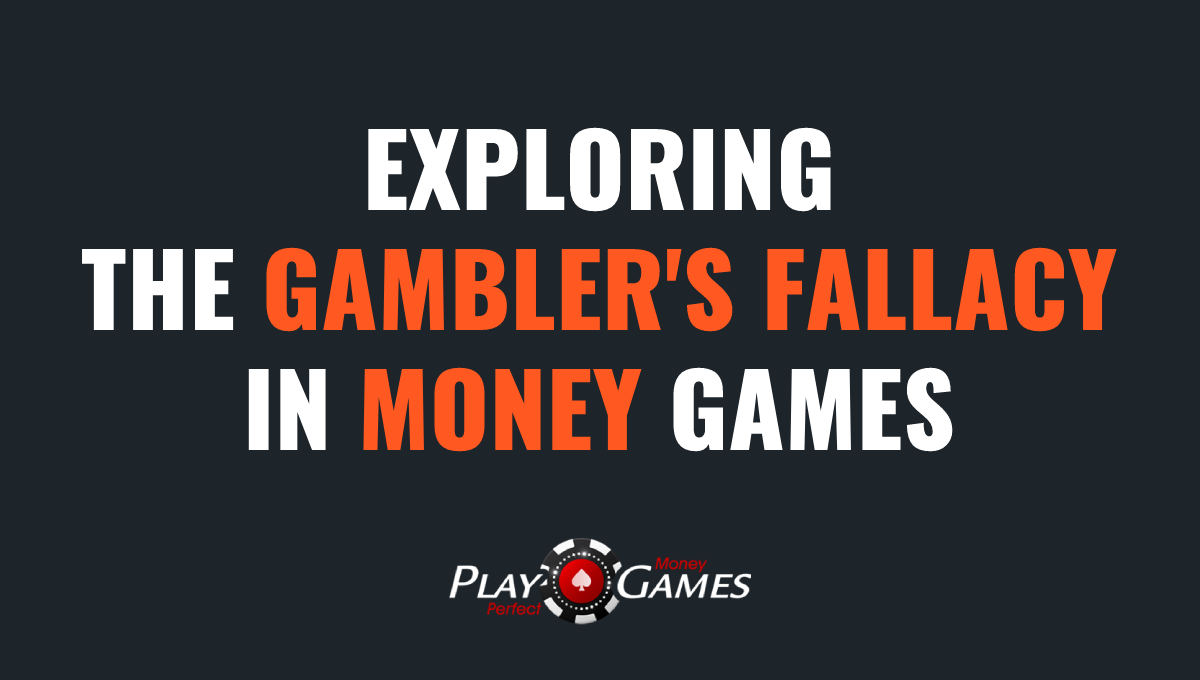Exploring the Gambler’s Fallacy in Money Games
Learn about the gambler’s fallacy, a common cognitive bias affecting players in money games. Understand probability better to improve your gaming strategy.
Do you think that past results may forecast the future or have an impact on luck? If so, it’s possible that you were duped by the Gambler’s Fallacy, a widespread cognitive bias that skews judgment in games when real money is involved. This blog post will investigate the Gambler’s Fallacy to see how it affects our ability to understand probability and chance in gambling situations. Knowing all about this psychological phenomenon can teach us a lot about how our thinking works when we are making financial decisions. Now grab a seat, unwind, and be ready to discover the eye-opening aspects of The Gambler’s Fallacy in real money games.
Understanding Probability Basics
First off, let’s break down the bedrock of the Gambler’s Fallacy: probability. Think of probability as the secret code behind gaming. We’ll simplify concepts like independent events and probability distributions, equipping you with the keys to the kingdom.
Probability underpins every money game, akin to a magician’s sleight of hand. To decode its mysteries, understanding independent events is crucial. Take flipping a coin: each flip is unaffected by the last, meaning the odds of heads or tails remain even with every toss. In gaming, recognizing the independence of events is vital for informed decision-making.
Now, let’s go deeper into the subject of probability distributions. Data distributions allow us to visualize and understand the likelihood of different events occurring. One commonly encountered distribution is the bell-shaped normal distribution, a symphony of probabilities that follows a specific pattern. By analyzing these distributions, we gain insights into the probabilities of various outcomes, enabling us to devise strategies that exploit the odds in our favor.
But there’s even more to probability, with concepts like expected value and variance. Expected value guides us toward potential gains or losses, helping assess an event’s long-term worth. The variance shows us the spread of possible outcomes—a low variance means predictability, while a high variance indicates a wild ride of potential ups and downs. Grasping these concepts lets us sail the choppy waters of money games with more assurance.
The Gambler’s Fallacy Explained
Imagine the exciting atmosphere of a casino, the sense of anticipation can be felt in the air. This is the dark domain of the Gambler’s Fallacy, capable of trapping even the most astute brains. So what exactly is this fallacy?
The cognitive fallacy known as the Gambler’s Fallacy tricks us into thinking that past performance predicts future outcomes through random processes. It deceives us into believing that something that hasn’t happened in a while is now more likely. For example, if the roulette wheel lands on black repeatedly in a row of games, we may be led to believe that red is “due” to appear next. Yet each spin is unrelated to the others; earlier spins do not influence those that follow.
When playing money games, falling for the Gambler’s Fallacy can cause even the most intelligent people to make bad decisions such as doubling bets or pursuing losses based on wrong probability notions. To maintain control during gaming, one must acknowledge and comprehend this misconception.
Cognitive Biases at Play
When it comes to money games, our choices aren’t always driven by logic. The Gambler’s Fallacy is just one aspect of the complex web of cognitive biases that shape our decisions. Let’s explore some key biases:
- Availability Heuristic: Our brains prioritize immediate, memorable information, which can skew our perception of likelihoods.
- Anchoring Bias: The first piece of information we learn (the anchor) can disproportionately influence our decisions.
- Confirmation Bias: We naturally seek out information that supports our preconceptions, potentially blinding us to the full picture.
- Recency Bias: Recent events seem more important than they are, which can mislead our decision-making in games.
By recognizing these biases, we’re better equipped to sidestep their effects, making decisions grounded in reality rather than fallacy.
Smart Strategies for Gaming Success
Armed with an understanding of the Gambler’s Fallacy and probability, let’s bolster our arsenal with strategies to navigate the gaming world effectively:
- Embrace Rationality: Approach games with logic, remembering that each event is independent.
- Master Probability: Dive into probability theory, understanding concepts like expected value and variance to inform your gaming choices.
- Adopt a Systematic Approach: Consider all angles—probabilities, risks, and personal risk tolerance—to make balanced decisions.
- Track and Analyze: Keep records of your gaming outcomes to spot patterns and refine your strategies.
- Seek Expert Insights: Learning from seasoned gamers can offer new strategies and perspectives to enhance your gameplay.
With these strategies, you’re set to tackle money games with confidence, turning knowledge into power.
Advanced Techniques for Gaming Mastery
These advanced techniques will take your game one step further:
- Bankroll Management: Set a budget and stick to it, managing your funds wisely to sustain your gaming journey.
- Risk Assessment: Weigh the potential rewards against the risks to make informed decisions.
- Selective Game Play: Choose games that match your skills and preferences to increase your chances of success.
- Psychological Play: Learn to read opponents and use psychology to your advantage, turning the tables even with a weak hand.
- Continuous Improvement: Stay humble and keep learning; the world of gaming is always evolving.
Remember, the journey to mastery is as rewarding as the victories themselves. Embrace the process, learn from every game, and cherish the adventure.
Lessons from the Front Lines
Real-world examples bring these concepts to life. From the infamous Monte Carlo Casino event to strategic poker bluffs, these stories illustrate the pitfalls of the Gambler’s Fallacy and the power of strategic play. By studying these tales, gamers can glean insights for their strategies, stepping up their game.
Case study 1: the Monte Carlo Casino incident.
The 1913 Monte Carlo Casino incident demonstrated the full power of the Gambler’s Fallacy. As the roulette wheel landed on black an improbable 26 times in a row, many players fell prey to cognitive biases. Believing patterns must correct themselves, they bet heavily on red but suffered substantial losses, neglecting each spin’s independence. This illustrates how probability misunderstandings can negatively impact decisions.
Case Study 2: The Art of Bluffing in Poker
A second case examines psychological strategy in poker. By studying opponents and outwardly projecting confidence with a mediocre hand, a player successfully manipulates perceptions to win uncontested pots. This highlights how understanding and exploiting human behaviors can create strategic advantages in games of deception.
Case Study 3: The Power of Expected Value in Sports Betting
The final case features sports betting. One fan consistently bets following his emotions on favorites and suffers recurrent losing streaks while another uses statistical analysis to identify positive expected value wagers and makes consistent wins. This emphasizes the importance of objective risk assessment for achieving profitability over the long run through strategically profit-driven bets.
Together these incidents provide real-world demonstrations of key gambling concepts. By distilling essential lessons, aspiring players can develop a cognitive edge to inform rigorous yet flexible decision-making approaches suited to their chosen field.
Conclusion
We hope this journey has enlightened you on the Gambler’s Fallacy and its role in money games. With probability as your guide, you’re now ready to enhance your strategy and embark on a thrilling path to gaming success.
So go ahead, armed with wisdom and strategies to conquer the gaming world. May your decisions be savvy, your tactics sharp, and your victories sweet. Until next time, game on!


